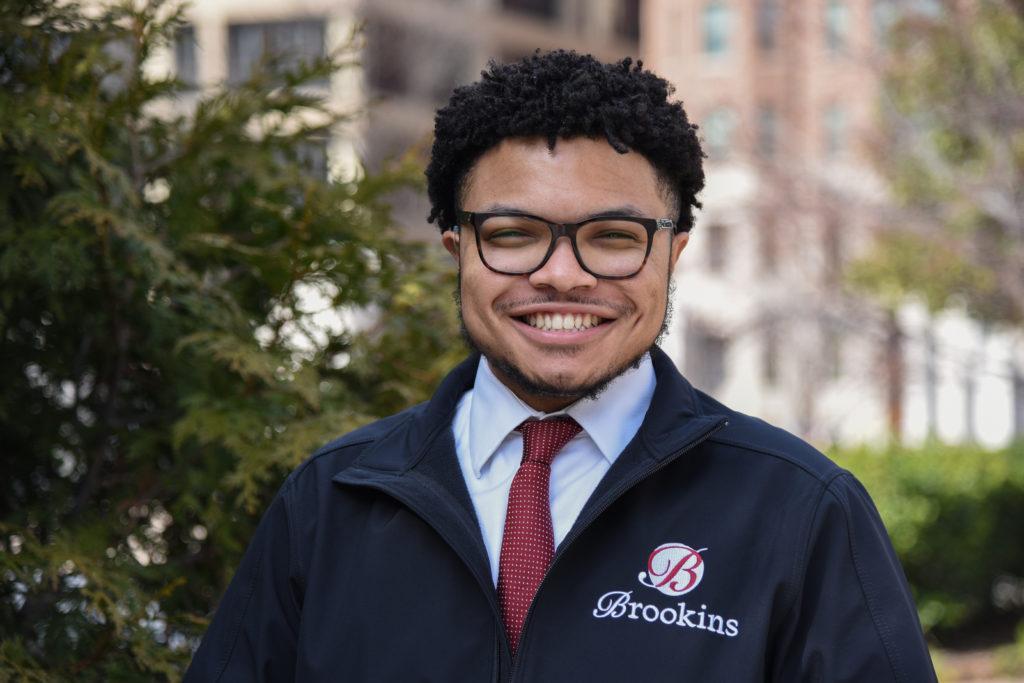A Student Association senator and junior launched his campaign for the organization’s top post, pledging to advocate for low-income students.
SA Sen. Howard Brookins, U-at-Large, entered the race Tuesday on a platform to provide financial assistance to low-income students, address racial issues on campus and press officials to take a stance on divestment. Brookins said he wants to elevate black student voices through updates to the Student Code of Conduct and curb food insecurity with a student-run food cooperative.
“We have a crisis occurring at this University where the student voice is being undermined and sidelined by the University at alarming levels, and I see my role as president as a student position to influence behind certain issues in order to get things accomplished,” he said.
Brookins is joining the race alongside Students for Indigenous and Native American Rights President Georgie Britcher and SA Vice President for Public Affairs Drew Amstutz, who also announced their campaigns Tuesday.
Brookins said, if elected, he would advocate updating the Student Code of Conduct, the Faculty Code and the Employee Handbook to include steps for disciplinary action that can be taken to prevent racially insensitive events. He said the changes would address “wrongdoing” within the code, citing an “unacceptable” comment University President Thomas LeBlanc made that compared support for fossil fuel divestment to hypothetical support for shooting “all the black people here.”
“I think the black community at this University feels alienated, and I can try to help mend that,” Brookins said.
He said he wants the code to mirror guidelines at the University of Miami, which specifies examples of bias-related incidents and harassment. The SA Senate passed a resolution earlier this month calling on officials to update the code with examples of bias-related incidents.
Brookins added that he would continue urging the University to divest from fossil fuel companies in his capacity as a non-voting member of the Board of Trustees. SA President SJ Matthews called on trustees to “let us in the room” regarding discussions affecting students – a move Brookins said would allow student leaders to have a greater say in issues like divestment.
Students turned out for three protests – the last taking place at a board meeting – earlier this month demanding that officials support fossil fuel divestment. The rallies come after LeBlanc revealed that 3 percent of GW’s investments are in fossil fuels.
“It has been a global issue – climate change, global warming – and any institution that continues to invest in the fossil fuel industry is therefore investing in climate change,” Brookins said. “That is a problem, and GW needs to take a stance on this issue.”
He said he would also work to reform programs in the Office of Student Financial Assistance to address issues that low-income students face, like lengthy financial aid processes.
Brookins said he wants to establish a student-run food cooperative near freshman residence halls along F Street because the buildings are farthest from students’ main grocery store, Whole Foods. The project draws from research that defines the area where Mitchell, Thurston and Potomac halls are located as “food deserts,” or areas in which the nearest grocery store is more than half of a mile away.
Thurston Hall will undergo renovations from the end of the spring to no later than fall 2022, and the final product will potentially include a dining hall in the basement of the building. Officials closed J Street, Foggy Bottom’s only dining hall, and switched to an “open” dining plan in summer 2016.
Brookins said he has discussed plans for the project with SA Vice President for Government Relations Yannik Omictin, who helped lay out plans for a similar project last fall. He said the cooperative would give students an opportunity to manage a business, build community and curb long-standing food insecurity concerns among freshmen.
Student leaders formed a food insecurity task force last academic year and recommended in a report the next semester that officials create a Foggy Bottom Campus dining hall and add more meal deals.
“It’s really about student affordability and accessibility to fresh produce options,” he said.
Brookins added that he would urge financial aid officials to include estimated response times for processing documents relating to loans or scholarships. More than 60 students alleged last academic year that they could not register for classes in time because their financial aid forms had not yet processed.
Officials overhauled the financial aid office to assign students to individual advisers, allow students and families to ask questions through a 24/7 chatbot and form a student financial aid advisory council that suggests changes to the office. He said he would advocate for officials to include approximate response times as a member of the council once it gets off the ground.
“It would alleviate a lot of stress on the student side because they would feel comfortable knowing it would be one or two weeks that is codified in that document,” he said. “It would also alleviate a lot of stress on the financial aid side because they wouldn’t have students constantly coming in about the same issues.”





